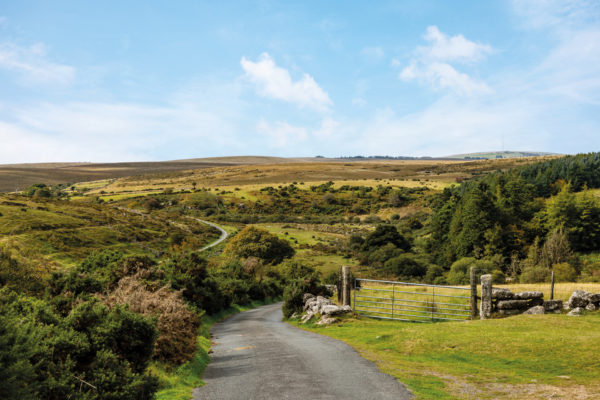‘The Travel Tipping Point’: Could Personal Carbon Passports Become The New Normal?
By
7 months ago
A new report from Intrepid Travel paints a damning picture for the future of travel
Personal ‘carbon passports’ could become a new normal in the future, according to the world’s largest B-Corp travel company, Intrepid Travel. But what is a carbon passport, and how might it impact individuals? C&TH explains…
Could Personal Carbon Passports Become The New Normal?
As the climate crisis worsens, travel is increasingly implicated. Should we be journeying to endangered islands like the Maldives while we still can, knowing each visit endangers them further? Leading B-Corp travel company Intrepid Travel has released a new wave of predictions for the industry, declaring this ‘unsustainable industry’ has reached ‘the travel tipping point’.
‘Travel as we know it hovers on the brink of extinction,’ Intrepid’s report says. ‘The industry is faced, at this watershed moment, with two potential roads ahead: one where climate breakdown and tourism restrictions curb the pursuit of wanderlust, and one where regenerative breakthroughs change the future of travel – and the world – for the better.’
‘The direct, catastrophic impact of climate change has for too long been viewed as something that’s far off in the future,’ adds Darrell Wade, co-founder of Intrepid Travel. ‘But it’s no longer something that’s going to happen – it’s something that is happening. It’s a short-to-medium existential risk that has arrived faster and harder than we ever expected, and is changing everything.’
One forecasted result is the introduction of a personal carbon emissions limit, or a ‘carbon passport’. But what does this mean, and why might it happen? As the Covid pandemic and its travel restrictions fade into history, the tourism industry is booming, with individuals feeling unlimited in the amount of flights they can hop aboard and the number of destinations they can tick off their bucket lists. But, says Intrepid, this won’t (and can’t) last.

The future will see the rise of eco-mobility options, from sleeper trains to zero-emission cruise ships to developments in alternative air fuel. © Intrepid Travel
‘On our current trajectory, we can expect a pushback against the frequency with which individuals can travel, with carbon passports set to change the tourism landscape,’ says Martin Raymond, co-founder of Intrepid Travel. This would, in theory, curb carbon emissions and lower the industry’s overall footprint.
‘These allowances will manifest as passports that force people to ration their carbon in line with the global carbon budget, which is 750bn tonnes until 2050,’ the report explains. ‘By 2040, we can expect to see limitations imposed on the amount of travel that is permitted each year.’
But is it right to shift the onus onto individual travellers? We’re not convinced – and the report is conscious of the need for an industry wide shift. ‘We need to plan now for a resilient, regenerative tourism sector,’ says Dr Susanne Etti, global environmental impact manager at Intrepid Travel. ‘We must recognise that the future will be different from business-as-usual, and that the climate crisis is not a competitive advantage. We must align, collaborate and accelerate collective action and innovation to decarbonise travel, as only then can our industry truly achieve its huge potential for sustainable development.’
That said, in this era of climate anxiety, the report also anticipates a new generation superseding our own: the Travel Transformers, aka Generation Alpha. ‘Having known nothing other than climate anxiety, they will drive all new, optimistic directions in the industry, seeking purpose when travelling,’ the report suggests. ‘Future travellers will set a new agenda, and their influence will mean that the days of snapping selfies in front of overcrowded tourist attractions will be numbered.’
Personal carbon measurements will play a key role in this, too. ‘By 2040, it will be unusual to see members of Generation Alpha without a carbon footprint tracker on their smartphones,’ Intrepid’s report says. ‘Every Uber ride, plane journey and trip to the supermarket will be logged in their devices, noting their carbon footprint in real time.’

‘The days of snapping selfies in front of overcrowded tourist attractions will be numbered.’ Cappadocia, Turkey © Intrepid Travel
Why Do We Need Personal Carbon Passports?
It’s well known that travel inflames the climate crisis, taking responsibility for 8 percent of global CO2 emissions, with air aviation accounting for 2.5 percent of its total. The Intrepid Travel report offers a stark fact: ‘Flying from New York to London generates 986 kg CO2 per passenger – more than the average person produces annually in 56 countries including Paraguay and Burundi.’
Travel is a huge polluter: a costly luxury whose impact is casually dismissed or willfully ignored by most. At present, experts suggest individuals should limit their carbon emissions to 2.3 tonnes each year to curb the climate crisis. Meanwhile, the average carbon footprint in the US is 16 tonnes per person per year, 15 tonnes in Australia and 11.7 tonnes in the UK. This, insists Intrepid, has to change.
‘A wealth of compelling climate evidence shows we are approaching a tipping point from which there is no return,’ Intrepid’s report says. ‘Research from NASA reveals that glaciers are retreating, Arctic sea ice is declining rapidly and extreme weather events are increasing in frequency. According to ReliefWeb, there were 387 recorded natural disasters and hazards in 2022, including monsoon floods in Pakistan and South Asia, record-breaking heatwaves and wildfires in Europe, as well as drought-induced famine in Uganda. Data from the World Meteorological Organisation shows the number of cataclysmic disasters has increased by a factor of five over a 50-year period.
‘In 2023, extreme weather and summer wildfires across Greece, Italy, Canada and Hawai‘i were yet another stark reminder that climate change is here,’ Intrepid says. ‘Looking ahead, warming temperatures will continue to adversely impact the winter and summer tourism industries. Colder destinations such as Lapland will struggle to maintain their snow-covered allure, while the island of Mallorca – ranked the most popular destination in the world by TripAdvisor in 2022 – is threatened by fast-rising sea levels, jeopardising its future.’

Tourists of the future will reach for positive-impact travel experiences that leave no trace. © Intrepid Travel (cropped)
Sea levels are rising, ice is melting, droughts and heatwaves are stretching, and fires are catching, spreading and destroying homes and habitats. These climate events have catastrophic implications for everyone – and there are a number of countries that travel is likely to cease to, according to Intrepid, from the Maldives to Venice, Amsterdam to New Orleans, with an estimated 30 to 40 submerged and semi-submerged cities by 2040.
As well as carbon passports, Intrepid Travel suggests we are likely to see an increase in ‘Chasing the Shade’ (that is, holidaying away from hot countries’ worsening heat) and ‘Virtual Vacations’ (utilising augmented reality to get our travel fix without the carbon footprint). Meanwhile, tourists will reach for positive impact adventures, escapes that leave no trace (think off-grid cabins assembled in two weeks, and disassembled just as quickly), and eco-mobility with sleeper trains, zero-emission cruise ships and developments in alternative air fuel.
Fancy getting a step ahead of this harrowing future? Here’s exactly how to calculate your carbon footprint – plus some tips on how to reduce it at home in the meantime.







